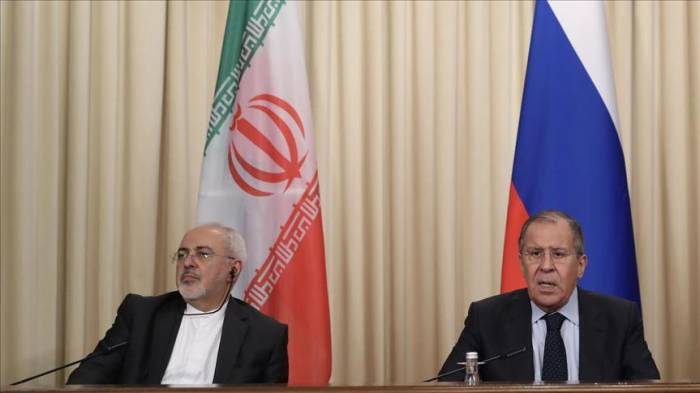Zarif’s visit to the Russian capital Moscow is part of his international tour, as an effort to save the Iran nuclear deal.
On May 8, U.S. President Donald Trump announced his decision to withdraw his country from the Iran nuclear deal, saying "it was defective at its core".
On Sunday, the Iranian foreign minister visited China and after his meeting with Lavrov he headed to Brussels to meet the EU High Representative for Foreign Affairs and Security Policy Federica Mogherini, and the foreign ministers of Germany, France and the U.K.
"Today we expect to examine how we can use the mechanisms at our disposal with the participation of the European Troika, China, Russia, Iran and the European Union to prevent the undermining of this important document, to prevent destabilization of the situation in the region and to prevent new threats to the non-proliferation regime.
"We appreciate the opportunity to meet in Moscow and exchange views on the Joint Comprehensive Plan of Action (JCPOA), around which, to put it bluntly, the crisis situation has developed," Lavrov said while opening the meeting with Zarif.
According to Zarif, the purpose of his trip is to get guarantees from the other participants of the nuclear deal that the interests of Iran will be protected.
"The ultimate purpose of all these negotiations is to obtain assurances that the interests of the Iranian people, which are guaranteed by the Joint Comprehensive Plan of Action, will be protected", Zarif said.
Zarif also called the U.S. decision to move its embassy from Tel Aviv to Jerusalem as "dangerous".
"Yesterday, we witnessed a very dangerous behavior from the side of the same regime towards Jerusalem", he said while commenting on the expected relocation of the U.S. embassy.
Last December, Trump drew widespread condemnations and protests from across the Arab and Muslim world when he announced his decision to recognize Jerusalem as Israel’s capital.
Jerusalem remains at the heart of the decades-long Middle East conflict, with Palestinians hoping that East Jerusalem -- now occupied by Israel -- might eventually serve as capital of an independent Palestinian state.
Anadolu Agency
















































